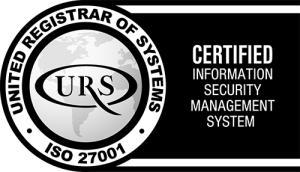Research Overview
For clinicians and researchers, lack of support tools such as validated clinical outcome measures or standard operating procedures for research protocols has held back therapeutic development. Whilst for patients, promising research results have still not been translated into the treatments they hope for.
Strong collaborations have been built across the neuromuscular community by engaging numerous international researchers and organizations worldwide, who are able to tap into the resources developed by TREAT-NMD. The resources provided in this section of our site span the research and clinical arenas and are part of a whole suite of tools that are essential for rapid progress towards new therapies.
Preclinical research
Preclinical research is a key step in the development of new disease treatments. Most frequently, a compound will only be tested in patients once it has been shown to be efficacious in an animal model that reliably reflects the human disease. Therefore, the choice of an appropriate animal model and the experimental parameters to assess the efficacy of a new chemical entity is crucial.
For some diseases, there are a variety of animal models available, which often makes it difficult to compare results. These animal models may differ in the genetic background and the severity of the pathology, which can lead to differences in the response to the therapeutic intervention. This situation is aggravated by the multitude of experimental protocols that are used as efficacy readouts. As a consequence, parallel efforts cannot be satisfactorily compared.
TREAT-NMD aims to overcome this fragmentation by harmonizing the tools used in preclinical research. The goal is to identify a limited number of animal models and experimental protocols that are considered appropriate for use by research groups around the world, thereby improving the comparability of the preclinical work and accelerating the development of new drugs into the clinic.
About clinical research
Clinical research is medical research that is carried out on humans. Individuals volunteer to participate in studies that aim to uncover better ways to treat, prevent, diagnose and understand human disease.
Clinical research includes both clinical trials that test new treatments and natural history studies, which provide valuable information about how diseases progress.
If you are considering taking part in a clinical trial, the doctor in charge of the trial will give you a lot of information about the treatment being tested, the possible results and the possible side-effects. It is always worth finding out as much as you can before you agree to take part.
Even before you get to the stage of talking to a doctor about a specific trial, you can read a lot about the general principles of clinical trials online.
Two useful resources providing general information about clinical research created by the US National Institutes of Health (NIH) are provided below.
How does clinical research work?
Finding out information about clinical trials
The most comprehensive online listing of trials is at www.clinicaltrials.gov: you can search for trials for a particular condition. We have also collected the listings of trials for specific diseases and you can find this in the ‘current trials’ section in the menu on the left.
The UK Muscular Dystrophy Campaign also has a listing of neuromuscular-related clinical trials in the UK and across the world available from the following link:

